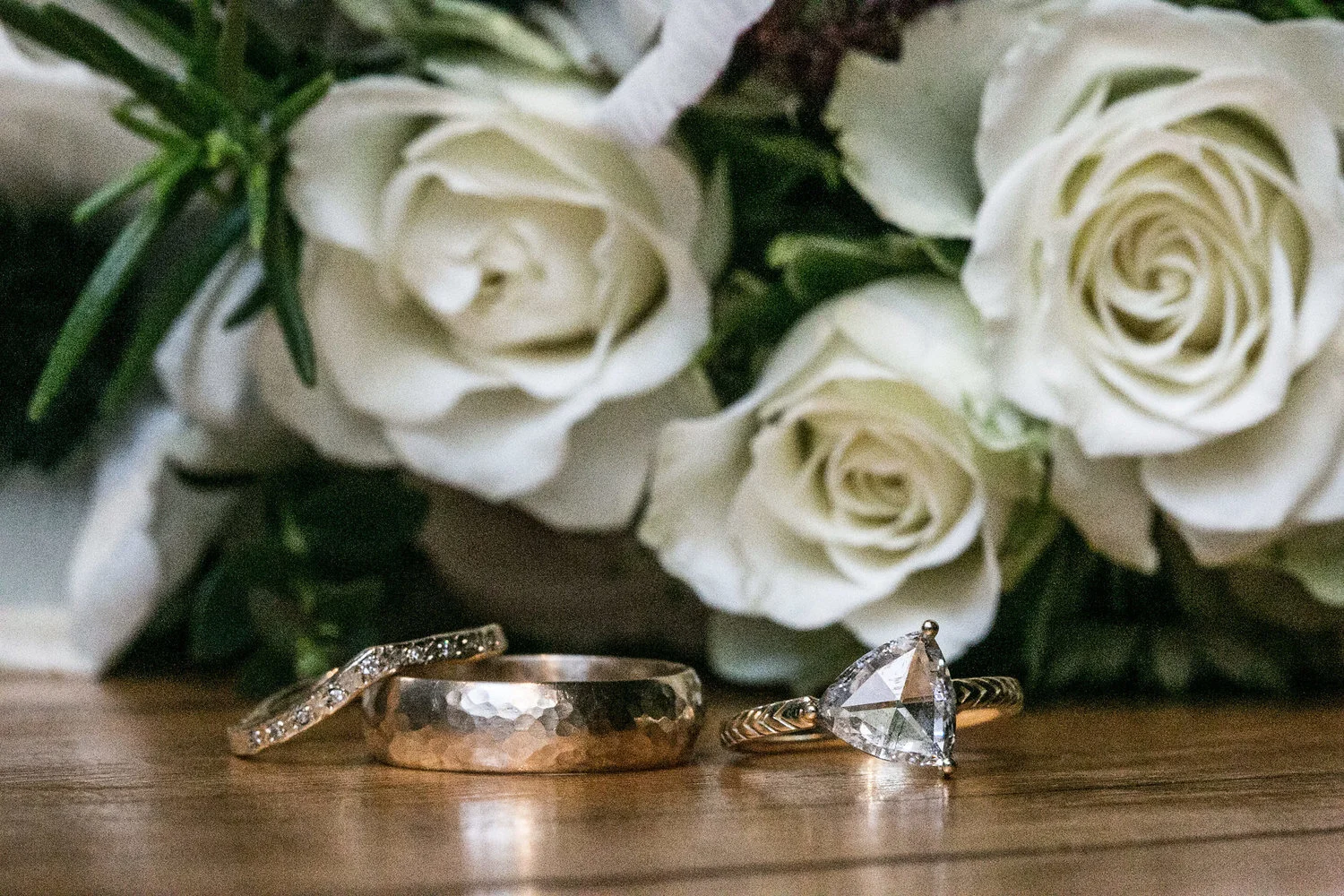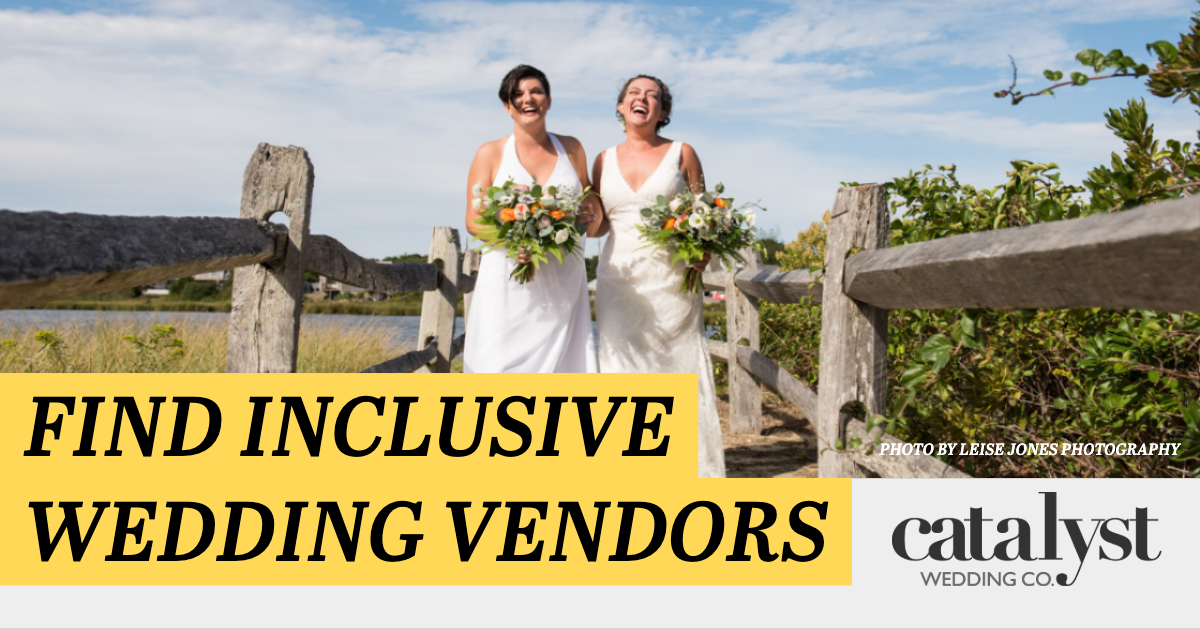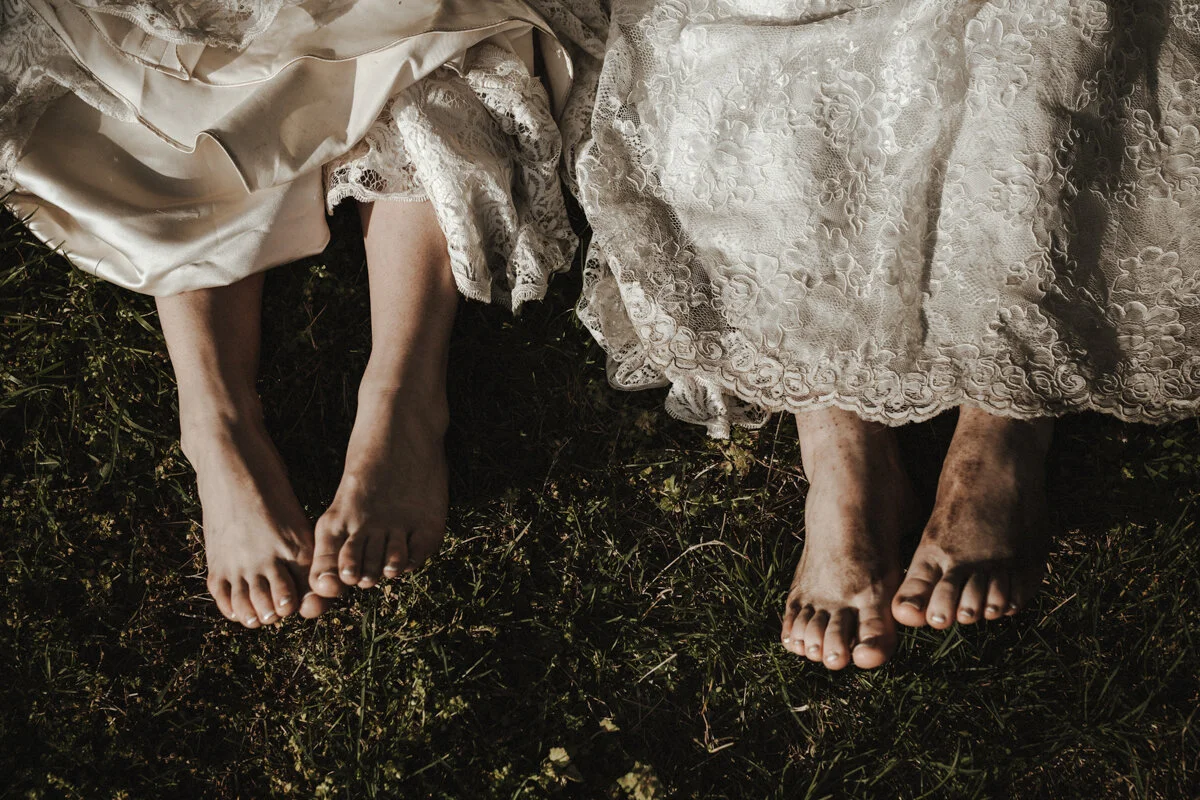Young, Queer, and Broke: Why We Chose to Elope
/In the first few years of our relationship, my partner would occasionally say “marry me” and I’d list off reasons why it just wasn’t possible (including both of us needing to finishing undergrad first). After a while, however, I found myself seriously watching Say Yes to the Dress and looking into ways to bring both of our families together. What was an equidistant point between his Massachusetts family and mine in Texas? Should we just ask everyone to fly to a location that’s far away? The excitement had me gearing up to pitch wedding destinations to family and friends in the style of a TEDTalk.
Cut to Spring 2019.
He was ready to officially propose and I could sense the ask coming on. Naturally, I panicked. He still wanted to marry me and, while I was interested in the idea of the ceremony, I had never seen the benefits of marriage play out for anyone I knew. I did not personally know any queer couples who had been fervent about getting married. If anything, to me, marriage seemed like the beginning of the end of something great. We went to couples’ counseling with our parents side-eyeing us all the while. To them, our little honeymoon phase of five years was screeching to a halt.
One night, we sat quietly in the aftermath of a “what about our future” argument. I curled up by the television and huffed down on the couch as we watched If Beale Street Could Talk for the first time. I hate to say it was a film that convinced me to marry, but it’s true. There’s a scene where the mother of the lead character tells her, “Remember love is what brought you here. If you trusted love this far, don’t panic now. Trust it all the way.” The succinct writing of James Baldwin and the whimsical stylings of Barry Jenkins swept me up. What else were we doing if not already loving and surviving together? The protections that come with marriage — health insurance, power of attorney, relationship recognition — can be seen simply as an added bonus for couples of vulnerable communities.
When he actually proposed about three months later, we were on a plane on the way to summer vacation with his family. He had me play a pre-made playlist of love songs, skipping to a specific song from the film while I read his proposal in a letter. The lady sitting in the aisle seat was definitely disturbed by my sporadic crying.
What should come next but a whirlwind of wedding planning and congratulations? For us, it was anything but.
I am a queer Black cis woman. My partner is a queer white and Lebanese trans man. We dated all through college, really confusing some family and friends. Both of us have been asked if we moved a little fast and if we’re truly happy given how young we are. When we met, he had just turned 20 and I was 18. Now in our mid-twenties, we’ve had a start to our relationship that makes me feel like even if we broke up now, we’d still be best friends.
We’ve had our ups and downs like every other couple. He is adamant about ripping the color catchers in half to save money and making sure the bed is tightly tucked in at the corners. I cannot stand when he leaves his beard hair all over the bathroom sink and I’m a backseat chef even when it’s his turn to cook dinner. We have our small annoyances that lead to petty fights that lead to making up before the weekend starts.
We’re each other’s first and longest serious relationship. We thrive on transparency and have been up front with one another about continuing counseling once we’re able to afford it again. This is very exciting stuff, especially for a young queer couple living in the era of marriage equality. However, our love life is made difficult by our experiences and appearances.
We look very different from each other.
I’m almost 5’9 or 5’10 depending on how I wear my hair. He weighs a lot less than me and comes in at about 5’4. He has very pale skin during three out of the four seasons, and I’m Black all year-round. Many people that see us in public think we’re just very close friends.
These differences have been hard the whole time we’ve dated. We get stared at, often. We’ve been yelled at from cars and mocked directly to our faces. People can’t seem to wrap their heads around the fact that we’re not simply besties. In queer spaces, it’s tough to prove that we belong there. People will assume we’re a straight cis couple just hanging around to be nosy about the gay agenda. In spaces for people of color, I always find myself attempting to make eye contact with some of the Black people in the room who may roll their eyes at me so that I can smile.
As you might imagine, this reaction to our dating extended to our engagement. I believe it is related to our families’ respective racism, transphobia, and homophobia. Both of our families have regarded each other’s partner as a phase. When he let my mother know he was planning to propose, she asked him, “Can y’all legally get married?” For our family members, it took a few years to convince them that we were serious, and for some, they still don’t think it’s real.
I know he also envisions a future where our families do eventually accept us. I know I do, too, or I’ve at least figured a wedding would bring us together. However, since the engagement, both sides have been dismissive about the fact that we’ve decided to move to the next step and it hurts just as much you’d imagine.
He was almost kicked out of his home when he announced that he planned to transition. This was a few years before we began to date but I vividly remember a night at his parents’ home one summer, where his father ripped into him for not communicating enough about pressing health concerns. He wasn’t a child anymore but I could tell that by trying to assert some bodily autonomy, he was pushing the status quo. With fire pulsing out of my crown, I charged forward to interrupt the fight only to be blocked by his brother who pled with me to just “leave it”. This was a normal occurrence — this aggression and berating. His mother echoed the sentiment and my ears were hot. I’d be “better off leaving it alone.”
I’ve endured backhanded comments about my sexuality since I was a child, but unlike him, I distanced myself from my family as soon as I was of age. If I didn’t have to deal with it, I wouldn’t. I dreamt of the day I’d get away from my abusive household since I realized it was a thing people do. My mother told me that leaving home at 18 was “for white people”. For the record, she has also said that about therapy and talking back to your elders. It hasn’t stopped me from doing any of these things, however. His health care needs tether him to his family but I know he also envisions a future where our families do eventually accept us. I know I do, too, or I’ve at least figured a wedding would bring us together. However, since the engagement, both sides have been dismissive about the fact that we’ve decided to move to the next step and it hurts just as much you’d imagine.
Reactions from friends have been less than enthusiastic, as we’re all scrambling to adjust to post-grad life. We’ve also fell out of friendships we realized were in place only due to convenience and proximity. It is quite lonely being young, queer, and broke. I always knew but it’s just now settling in — community takes a while to forge.
This has pushed us both in tough directions and created the occasional rift between us about family dynamics. He feels I don’t give people enough room to change. I feel his expectations are too high. We’ve offended our families by not inviting them to a ceremony but we’re also blatantly aware of their lack of support.
It is quite lonely being young, queer, and broke. I always knew but it’s just now settling in — community takes a while to forge.
Regardless, we’ve decided it would be more intimate and self-respecting to have an elopement as soon as we’re able, and a honeymoon when we can afford it. This style of wedding wasn’t my top choice but it seems like that’s because of what the wedding industry tells us is appropriate. Big, flashy weddings are for the white, cis, and heteronormative. It seems if you don’t fall into one of those categories, you’re either lucky enough to come from a family that accepts you without pause, or someone hijacked your wedding planning.
So we’ve narrowed our plan down to a destination wedding for two.
We’ve settled on “somewhere in the South or Pacific Northwest,” and when we get into a tiff over the color scheme or type of musician to hire, I remind myself that we’re facing a lot on our own that most do not. Right now, it seems most fitting to just hold hands with the one person who has stood by my side during the toughest times and step into being alone together.
DANIELLE BROWN
Danielle Monique (she/her) is a fat Black queer who writes short stories and essays. She is a Mount Holyoke College alum (’18), and a current cog in the non-profit sector with an intent to be in an MFA program by next fall. Her work has appeared in inQluded. She currently lives in Baltimore with her fiancée, Adam, and their dog. You can find more of her work on her website: wstpch.com






















